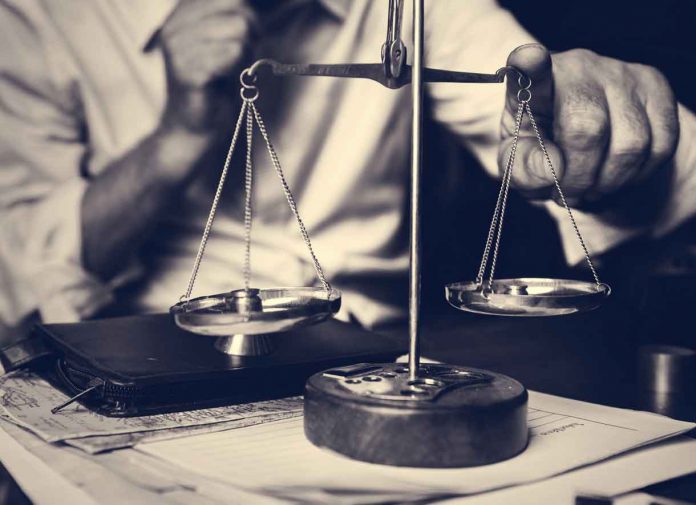When you’re planning a vacation, you’re probably focused on book exciting adventures and picking out the attractions you’ll visit. You likely aren’t thinking about what will happen if something goes wrong. However, you never know what life is going to throw at you and you need to be prepared for any scenario.
If you’re planning on visiting the United States, you should familiarize yourself with how the legal system in that foreign country works. Should something unfortunate happen, such as getting into a car accident or being robbed, you need to know how the U.S. court system is going to handle your case.
The first thing to know is that there are three branches in the U.S. government: the legislative branch, the executive branch, and the judicial branch. The legislative branch creates the laws and includes lawmakers at both the state and federal level. The executive branch enforces the laws and includes the police and prosecutors.
The judicial branch is meant to serve a few purposes:
- Check the power of the police and prosecutors to make sure they are not overreaching when people are arrested and tried for crimes.
- Balance the power of legislators to ensure that they do not pass onerous or unfair laws.
- Resolve disputes between people in an orderly way using the rule of law.
Being involved in a legal dispute can be confusing, especially when you’re in a foreign country. Lawyers and judges are usually highly educated and can be highly intimidating. Laws can be difficult to understand and can sometimes be applied in strange ways.
However, the court systems are designed to be the great equalizer in the U.S. system of government. Anyone with a legal case can file a lawsuit to have the court’s assistance in resolving it. And anyone who is accused of a crime can have their guilt determined by a jury of fellow citizens to ensure they are tried fairly.
Here is what you need to know if you go to court in the United States:
The Role of the Parties
The parties are the people or entities involved in a court case. In a criminal case, the plaintiff is the state or U.S. government and the defendant is the person accused of the crime. For example, in a criminal case in California against John Doe, the case would be titled “The State of California versus John Doe.”
In a civil case, the plaintiff is the person who was wronged and filed the lawsuit. The defendant is the person who caused the physical or economic injury. For example, if a contractor agreed to build a house and charged the homeowner for it but never showed up to do the work, the homeowner is the plaintiff and the contractor is the defendant.
To have a case, the plaintiff must have a legal right that was violated by the defendant. For example, if the defendant broke a law, breached a contract, or injured the plaintiff in a car crash, the plaintiff has a criminal or civil case against the defendant. If there was no legal, economic, or personal injury, there is no case.
One of the principles of law that is applied in determining whether there is an injury is called comparative negligence. Under this doctrine, a plaintiff who contributed more than 50% of the fault to an accident is not entitled to recover any of their damages. If you were driving during your vacation and rear-ended another driver, you likely contributed more than 50% of the fault and won’t be able to recover your damages.
The Role of the Lawyers
The parties can represent themselves in court. However, most people and businesses hire lawyers to represent them.
Lawyers provide many services to their clients in a legal case, including:
- Advice and counsel: Lawyers provide legal advice to their clients.
- Representation: Lawyers speak on behalf of their clients to advance their clients’ interests.
- Advocacy: Lawyers advocate for their clients’ legal positions by presenting factual and legal arguments.
- Negotiation: Lawyers negotiate to try to resolve disputes if that is in their clients’ best interests.
- Litigation: Lawyers prepare a case for trial and present it in court to a judge or jury.
Of these, litigation is usually a last resort. In fact, about 96% of personal injury cases are settled without going to trial. If you have an accident while vacationing in the United States that involves another party, you likely won’t have to enter the courtroom at all.
Role of Judges
Judges have the responsibility to act as the neutral overseer in a courtroom. Judges are called on to perform many jobs. One of their main responsibilities is to make legal rulings. Judges hear both sides of a legal dispute and rule for one or the other party based on the law.
Another task judges regularly do is set bail.In criminal cases, judges determine whether a defendant will be granted bail. Bail occurs when a bail bond agency acts as surety and pledges money or property as bail to guarantee that the defendant appears in court. Judges also ensure order. They enforce the court’s rules to make sure cases are presented in an orderly way without prejudicing the jury.
If you need to go to court in the U.S. because of something that happened while you were visiting, you should understand how courts work and what role each person plays. Understanding these basics can help you focus on the more complex issues rather than struggling to figure out who each person is and what they are supposed to do.








